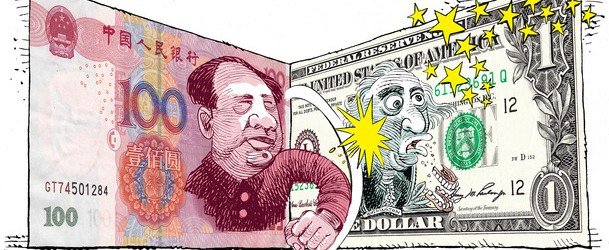
China's central bank will extinguish a capital requirement rule for foreign currency trading on Monday, according to two sources alongside the ruling, which should slow the yuan's appreciation rate after the currency has reached the highest level in 16 months.
China has invested R $ 60 billion in the purchase of companies in Brazil since 2015
Beginning this Monday, the People's Bank will no longer require financial institutions to make a cash reserve when it purchases dollars for its customers through forward exchange contracts (agreement whereby the two parties combine a exchange to carry on a business in the future).
Today, a risk reserve equivalent to 20% of the total forward traded in the previous month is required. The rule was put into practice in October 2015, a decision that at the time was interpreted as a way to restrict the acquisition of dollars at a time of devaluation of the yuan. The end of this rule tends to facilitate the purchase of dollars by traders operating in China, which would reduce the strength of the yuan.
Wanted, the People's Bank did not respond to a request to position the report.
In the last three months, the yuan strengthened by almost 5%, amid speculation that Chinese officials would try to value the exchange rate as the 19 th National Congress of the Communist Party of China, the most important event in the country's political calendar and which occurs every five years. But the recent rapid appreciation of the currency would have caused the Communist Party to decide to stop it.
According to Sasha Tihanyi, strategist at TD Securities, the end of capital reserve requirements "is a good way to signal discomfort with the pace of appreciation of the currency and rock the market."
The timing, at least, is appropriate for change, wrote China Merchants Bank analyst Wan Zhao, once the dollar has weakened on a global scale.
"The strategy is actually better than simply intervening in the exchange rate. This is an important signal that suggests that the authorities believe the currency is strong enough to hurt exports," wrote Robert Minikin, a strategist at Standard Chartered Bank
( )
)